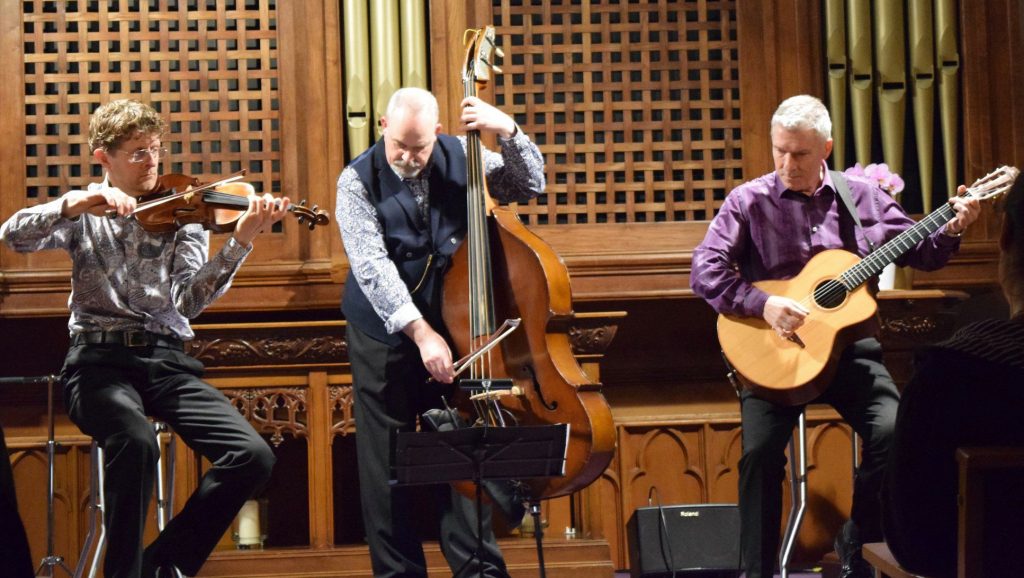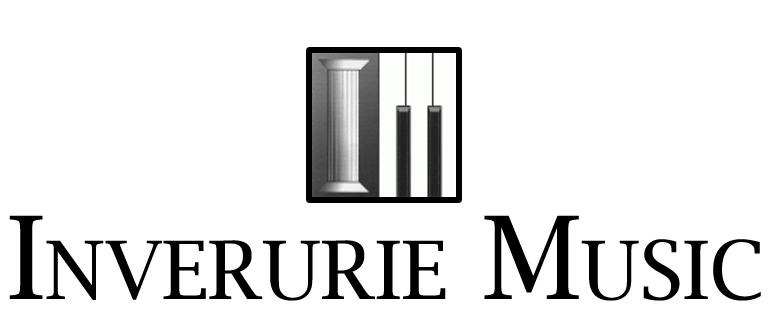
On Saturday, the Kliphuis Trio, Tim Kliphuis (violin), Nigel Clark (guitar) and Roy Percy (double bass), earned enthusiastic applause for an exciting and expertly blended performance. The Trio are on tour round Scotland. The pieces were improvisations and were clearly and interestingly introduced by Tim rather than by a formal programme. Improvisation takes many forms and is not just expressed under the heading of jazz. If we widen the concept, there is a wealth of early music, traditional forms and international music that have a common strand in improvisation.
What is improvisation? Basically it is imitation of melody with tonal and rhythmic decoration which is coupled to an awareness of the harmonic progression. Tim pointed out that all court musicians and many since were expected to improvise. Ancient forms of music such as Indian raga and Scottish pibroch are examples of improvisation and Grounds, Fandangos, Toccatas and Fantasias all owe their origin to improvisation. The keyboard solo in the first movement of the 5th Brandenburg Concerto, although it is written down, has a strong improvisatory flavour.
The Trio have played together for fifteen years and are well suited for the Hot Jazz style, which was pioneered by Stephane Grapelli and Django Reinhardt in the 1930’s. Tim Kliphuis’s silky violin covered all the nuances of the style admirably, while the rhythm and subtle racing scales were given the light touch by Nigel Clark. Roy Percy on double bass did some subtle melodic work and a mightily impressive slap bass.
It was interesting that the main numbers that the Trio utilised were the Brandenburg works of J.S. Bach and the Winter Season by Vivaldi. These great compositions were a stylistic triumph for the Trio that provided the rocket fuel for the concert.
We know that Bach admired the work of Vivaldi – he transcribed a concerto for four violins into one for four harpsichords – and copied a good deal more. In ‘Brandenburg’, the Trio chopped up the sections and reassembled them like an elaborate piece of marquetry. The result was a highly polished piece of virtuosity and synchronicity.
Vivaldi, who hoped to be remembered as an opera composer, was an unfulfilled musician ahead of his time. An expert at tone painting in composition, he could write music faster than the copyist! Surprisingly, the Four Seasons were not unearthed until 1950. The discovery of these popular pieces sparked off a Baroque revival, which we hope is still on-going.
Tim’s violin sent a shiver of icy drops of rain our way just in case we thought that we might escape winter, followed by the insistent rhythm of the storm that put the audience on the edge of their seats. The resounding applause from the full Acorn Centre audience can be taken to mean that Inverurie would be very glad to welcome the Tim Kliphuis Trio again.
A. Massey
26th November 2019




Comments: no replies